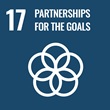
Project information
EXposome Powered tools for healthy living in urbAN SEttings
(EXPANSE)

- Project Identification
- 874627
- Project Period
- 1/2020 - 12/2024
- Investor / Pogramme / Project type
-
European Union
- Horizon 2020
- Health, demographic change and wellbeing (Societal Challenges)
- MU Faculty or unit
- Faculty of Science
- Cooperating Organization
-
Universiteit Utrecht
- Responsible person Prof. Roel Vermeulen
By 2030 more than 80% of Europe’s population will live and interact with a complex urban environment, consisting of a mixture of social and environmental factors. These factors include: where we live and work, where and what we eat, our social network, and what chemical substances we are exposed to. Individually or collectively these factors, known as the Urban Exposome, have an often modifiable impact on our health and provide important targets to improve population health. By studying the impact of the Urban Exposome on the major contributors to Europe’s burden of disease: Cardio-Metabolic and Pulmonary DisWhere we live, what we eat, how much we exercise and many other factors non-generic drivers of disease have an potentially modifiable impact on our health.
This perspective is known as the Exposome. EXPANSE will address one of the most pertinent questions for urban planners, policy makers, and inhabitants in Europe: “How to maximize one’s health in a modern urban environment?”. We distinguish two compartments of the Exposome: the External Exposome capturing complex combinations of environmental, lifestyle and social factors affecting health, and the Internal Exposome, reflecting biological responses to External Exposome stressors. EXPANSE will study the impact of the Urban Exposome on Cardio-Metabolic and Pulmonary Health and by evaluating the impact of intervening on specific factors in the Urban Exposome on reducing the burden of CMPD. EXPANSE will bring together mega-sized administrative
cohorts, comprising the health data of more than 45 million European citizens, large individual adult and matured birth cohorts (> 2 million European citizens), and urban-lab case studies (5,000 individuals). Our goal is to create a long-term sustainable toolbox and infrastructure that can be used to generate knowledge on the Urban Exposome and the translation of this knowledge into actionable information for citizens, public sector policy makers, and private sector companies.
Sustainable Development Goals
Masaryk University is committed to the UN Sustainable Development Goals, which aim to improve the conditions and quality of life on our planet by 2030.
Publications
Total number of publications: 10
2024
-
Countrywide analysis of heat- and cold-related mortality trends in the Czech Republic: growing inequalities under recent climate warming
International Journal of Epidemiology, year: 2024, volume: 53, edition: 1, DOI
2023
-
Current-use pesticide exposure pathways in Czech adults and children from the CELSPAC-SPECIMEn cohort
Environment International, year: 2023, volume: 181, edition: November 2023, DOI
-
Development of historic monthly land use regression models of SO2, NOx and suspended particulate matter for birth cohort ELSPAC
Atmospheric Environment, year: 2023, volume: 301, edition: May 2023, DOI
-
Effects of pesticide exposure on oxidative stress and DNA methylation urinary biomarkers in Czech adults and children from the CELSPAC-SPECIMEn cohort
Environmental Research, year: 2023, volume: 222, edition: April 2023, DOI
-
Firefighters and the liver: Exposure to PFAS and PAHs in relation to liver function and serum lipids (CELSPAC-FIREexpo study)
International Journal of Hygiene and Environmental Health, year: 2023, volume: 252, edition: July 2023, DOI
-
The exposure of Czech firefighters to perfluoroalkyl substances and polycyclic aromatic hydrocarbons: CELSPAC – FIREexpo case-control human biomonitoring study
SCIENCE OF THE TOTAL ENVIRONMENT, year: 2023, volume: 881, edition: July 2023, DOI
2022
-
City-scale assessment of long-term air quality impacts on the respiratory and cardiovascular health
Frontiers in Public Health, year: 2022, volume: 10, edition: November 2022, DOI
-
Genotoxic effects of transboundary pollutants in Pinus mugo in the high mountain habitats
Ecological indicators, year: 2022, volume: 140, edition: July 2022, DOI
-
Merging the exposome into an integrated framework for "omics" sciences
iSCIENCE, year: 2022, volume: 25, edition: 3, DOI
2021
-
Analytical strategies for chemical exposomics: exploring limits and feasibility
Exposome, year: 2021, volume: 1, edition: 1, DOI



